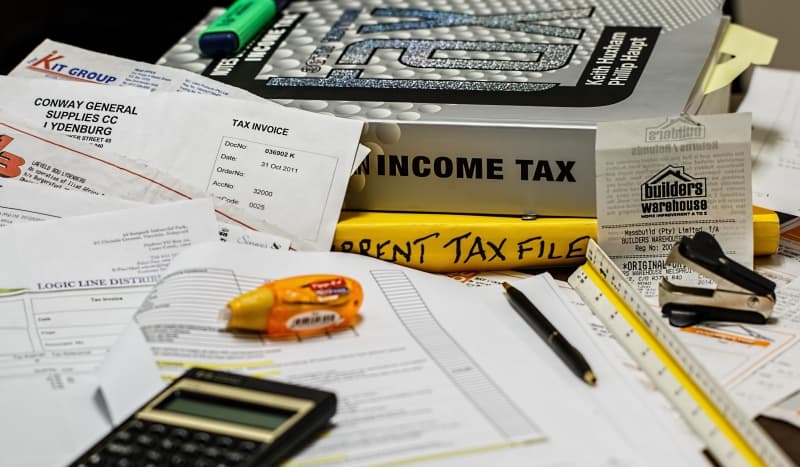How to Become an Accountant

If you've thought about becoming an accountant before but never done anything about it, why not check out our quick guide to see what's involved and how to get started?
There's lots of jokes, anecdotes and urban myths about what it's like to be an accountant. But it's a rewarding and well paid job once you're qualified and depending on the industry and the place you work - very interesting too. How about a micro brewery or an Internet start up?
Some Thoughts to Get Started
- You don't have to go to University to be an accountant
- You can train as you work in many cases
- You can also join a firm as a graduate and retrain in many cases
- Accountancy can be a vibrant and interesting career
- Senior accounting positions can command salaries of £250k pa
- Lots of FTSE 100 Directors are qualified accountants
- You can be employed either by a company, or work for a consultancy
- There's at least 10 exams to pass to gain your Chartered status
So we hope that's not scared you off (especially the last point). But it just shows the different paths people take in becoming a chartered accountant.
How to Become an Accountant
As already highlighted you have a number of options open to you.
You can either go to University and major in an accountancy-based degree or maths or if university is not for you, then you can start working with an accountancy firm in whatever capacity and enrol on a recognised course.
See the websites of Institute of Chartered Accountants or the Association of Accounting Technicians.
Jobs in Accountancy
Having a sound understanding of numbers and figures makes you a very, very desirable employee. Accountants are very much one of the foundations of a successful business. They will typically have a broad understanding and knowledge of the business, it's profits, it's strategy and how it's going to continue to make money!
Whilst you will invariably need to start at the bottom and work your way up to the £250k+ jobs, working and understanding simple or complex business structures can be as rewarding as it may be stressful.
As well as being within a company, accountants are also able to work for consultancies like KPMG or EY which means they then help businesses and organisations of all sizes. The type of work they can get involved with includes auditing company books, calculating tax bills, budget planning, looking at mergers and acquisitions and risk management.
By its nature this means accountants are nearly always in demand and this gives you flexibility of choosing which sector or industry you look for work in.
Getting Qualified
There's a number of ways to get yourself qualified as a Chartered Accountant.
The ACA (Associated Chartered Accountant) exam is the UK’s most recognised accountancy qualification. The ACA entry level requirements include two A-levels and three GCSEs with good passes in both maths and English.
There's more than 1500 companies that are
Increasingly, some organisations will take on school leavers with good grades and then train you in-house with some evening and weekend classes to get you through the relevant exams. This means if training at work, they may pay some or even all of your course fees.
You Chartered Accountant training will take at least three years with a requirement for you to complete over 450 days of technical work experience. You must also pass both examination stages.
Specialist Areas
There are a number of specialisms that you can focus on after qualifying. For example forensic accounting or small business accounting. Within that there are also various areas that are more specialist.
For example, for small businesses, what about claiming for R&D tax credits. This means that companies that incur costs in developing new products, processes or services can then receive a tax deduction against this outlay. For example, average claims each year for SME's are about £45,000.
More Information
Why not find out more about the courses and exams involved at :
You Might Like
Find A Chartered Accountant For Your Business
For tax or general accounting, if you can find a good Chartered Accountant, they will definitely more than pay their way and help you plan your money affairs efficiently.Finding a Good Accountant
It is important to find a good accountant for your business, find out how in this simple guide.Become an Estate Agent
A guide to becoming an estate agent. Everything that you need to know about becoming an estate agent.Become A Life Coach
Thinking about a career change? Find out how to become a life coach if you are a good listener, want to help change their lives for the better and feel you're ready for the challenge.How Does Car Financing Work?
Car financing is an option when buying a new car, find out how it works in this handy guide
Useful Websites
- Learning 247
A leading distance-learning and self-study multimedia-based training option, Learning247 provides courses for accounting, IT, business, sales, web design and more. - Top Financial Jobs
Job board specialising in roles in accountancy, banking, insurance and financial services. - Online Training Courses
Course Feeder provides a range of online courses including IT, Fitness, Beauty, Accounting, Catering and Music. In fact a wide range of free and distance learning courses to take you to the next level - Acumen Accounting
Chartered certified accountants, South London/Surrey based, specialising in small businesses and sole traders, efficient personalised service, competitive rates, home visits - Mitchells Chartered Accountants
Specialise in assisting international IT Contractors who wish to work in the UK, and new businesses, with friendly and helpful service - Sage Software
UK's largest provider of Accounting software and online payment gateway services for credit and debit cards. - Add Your Website Here